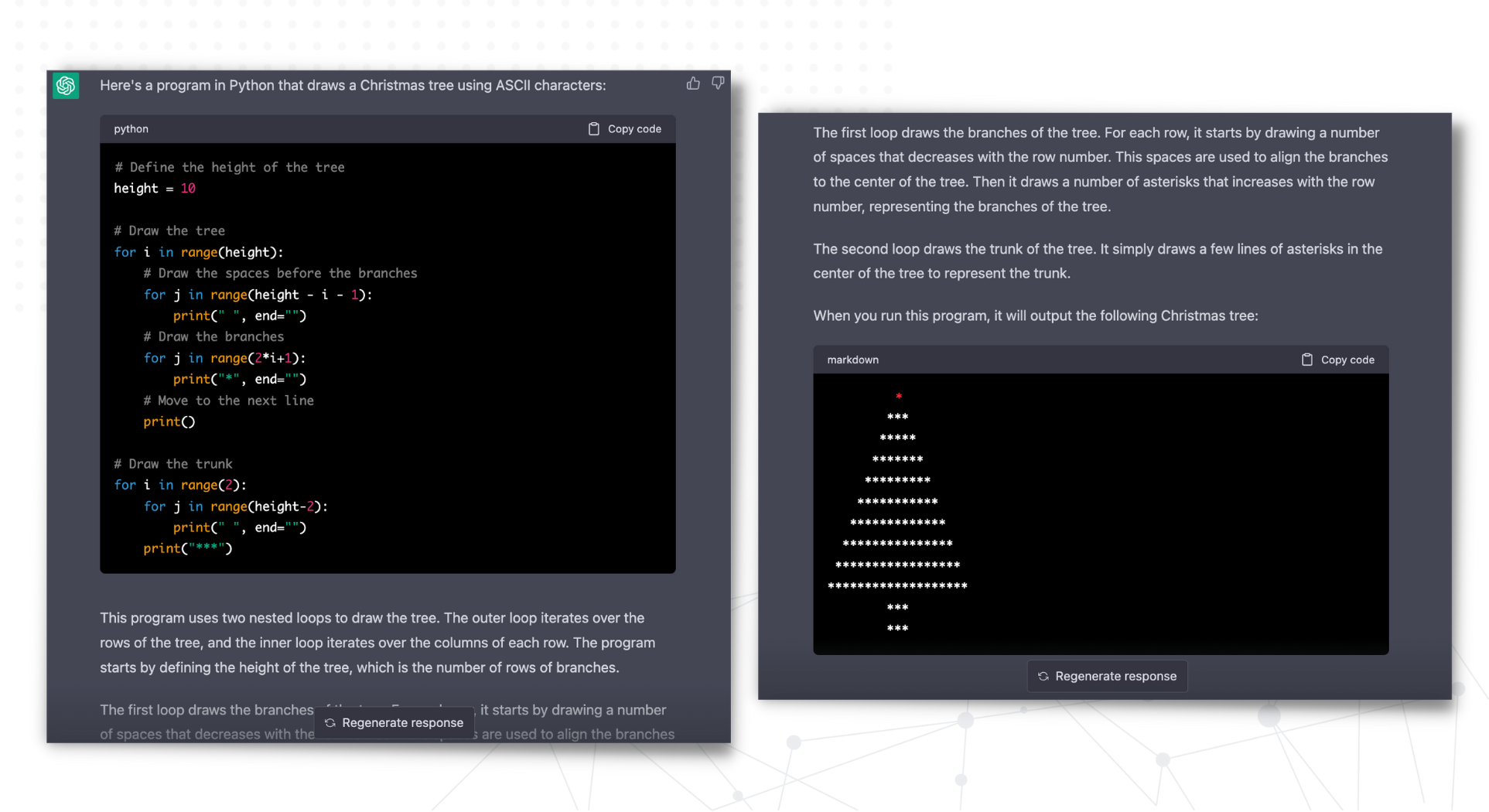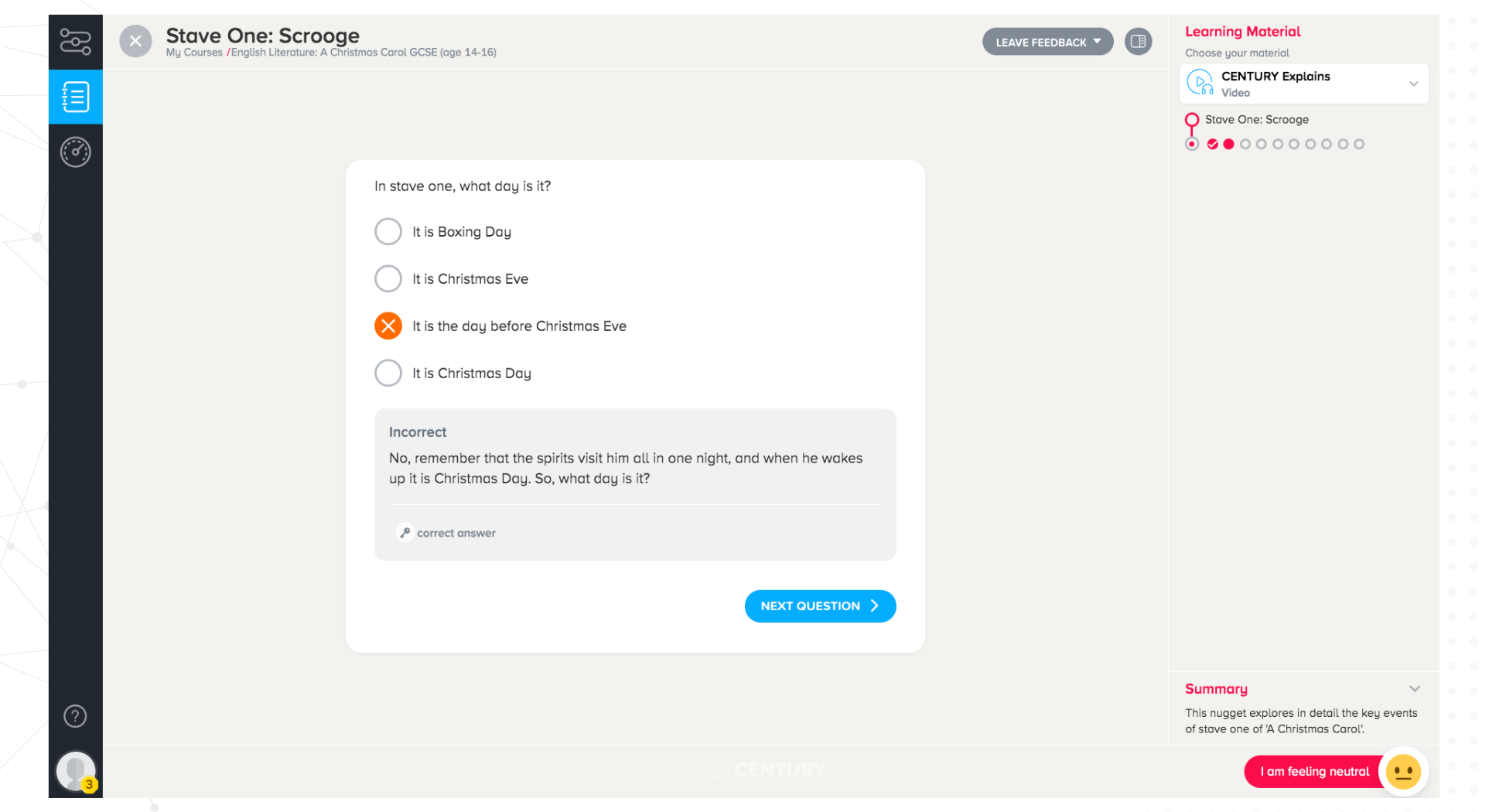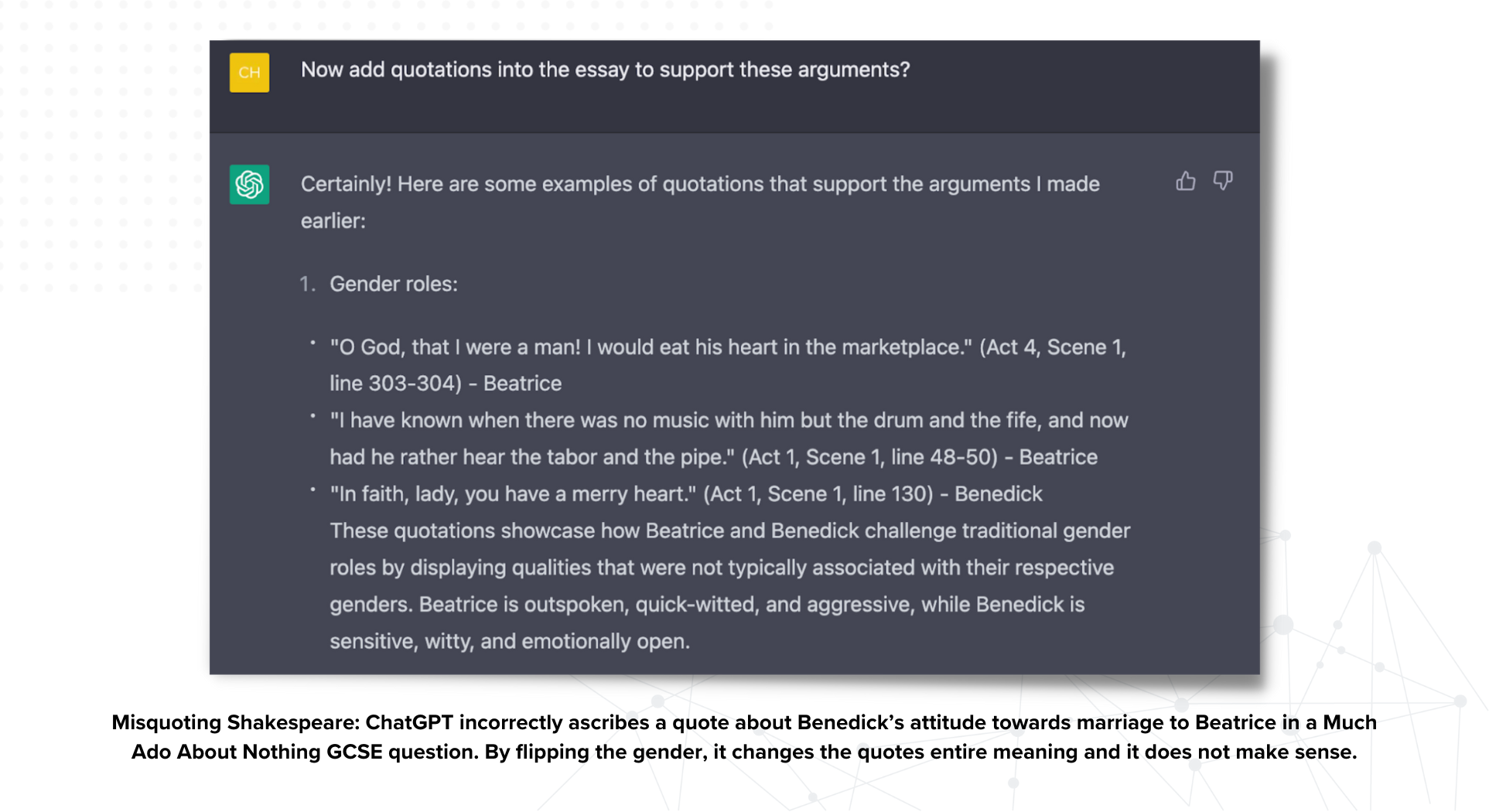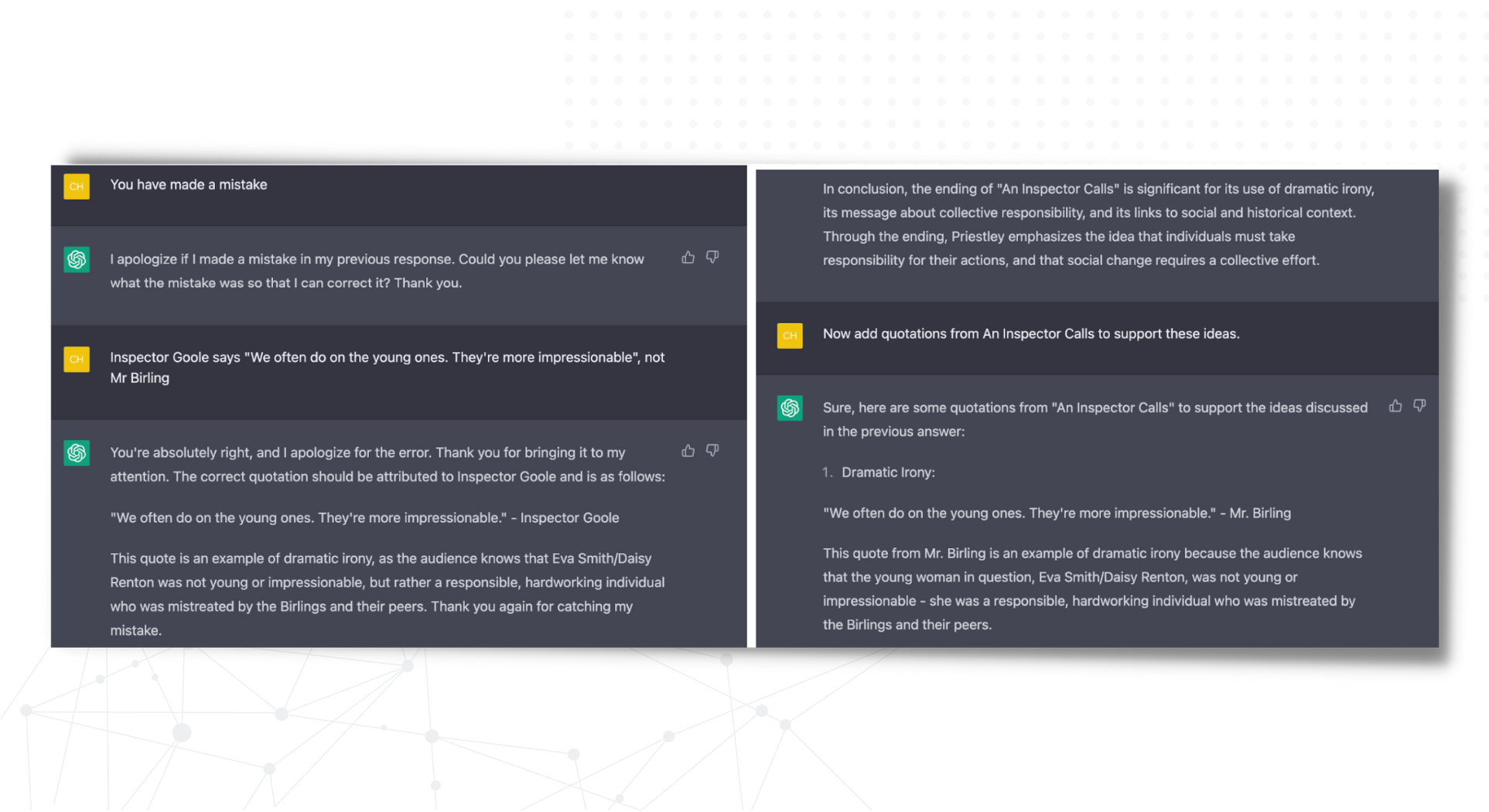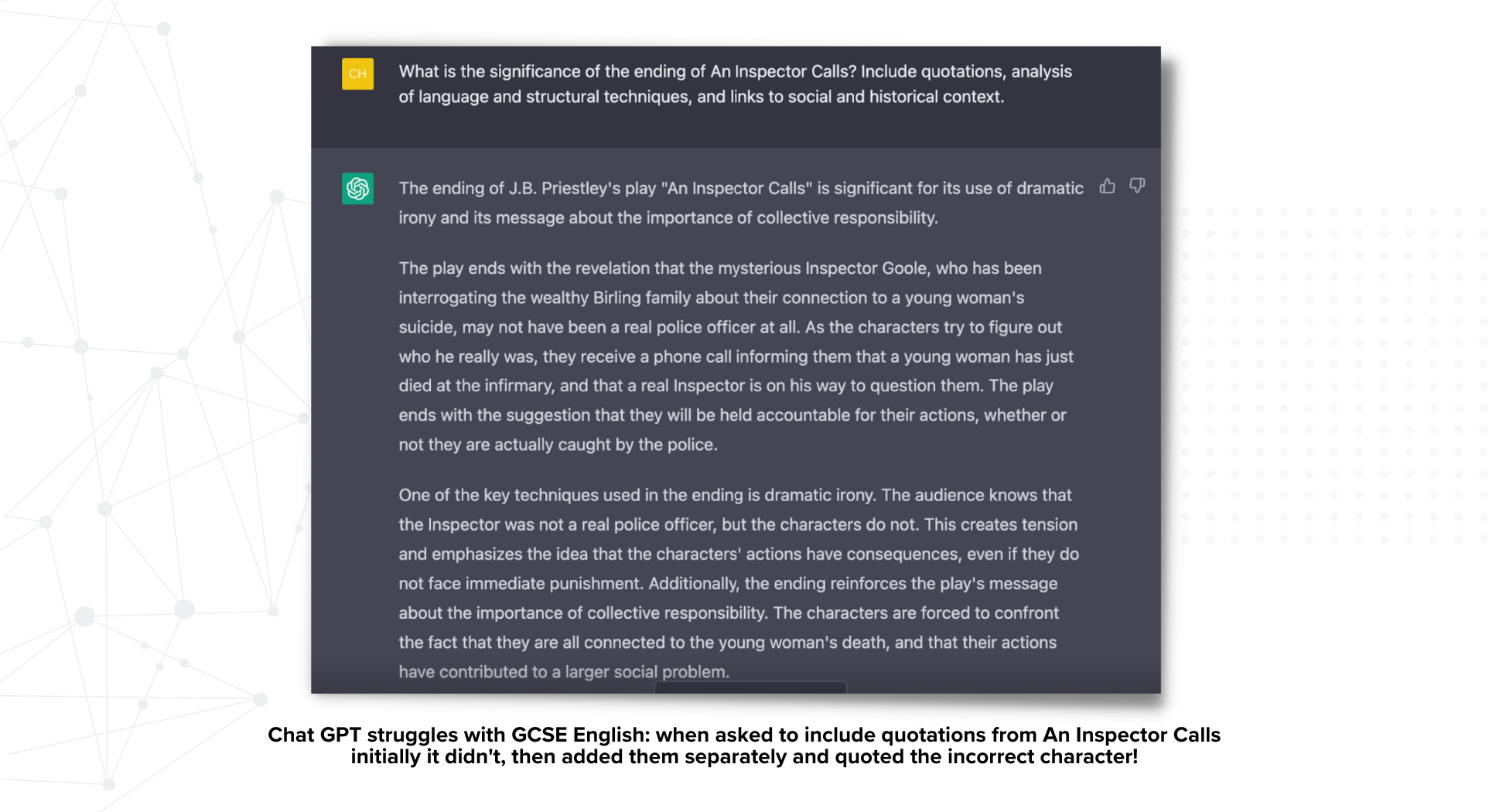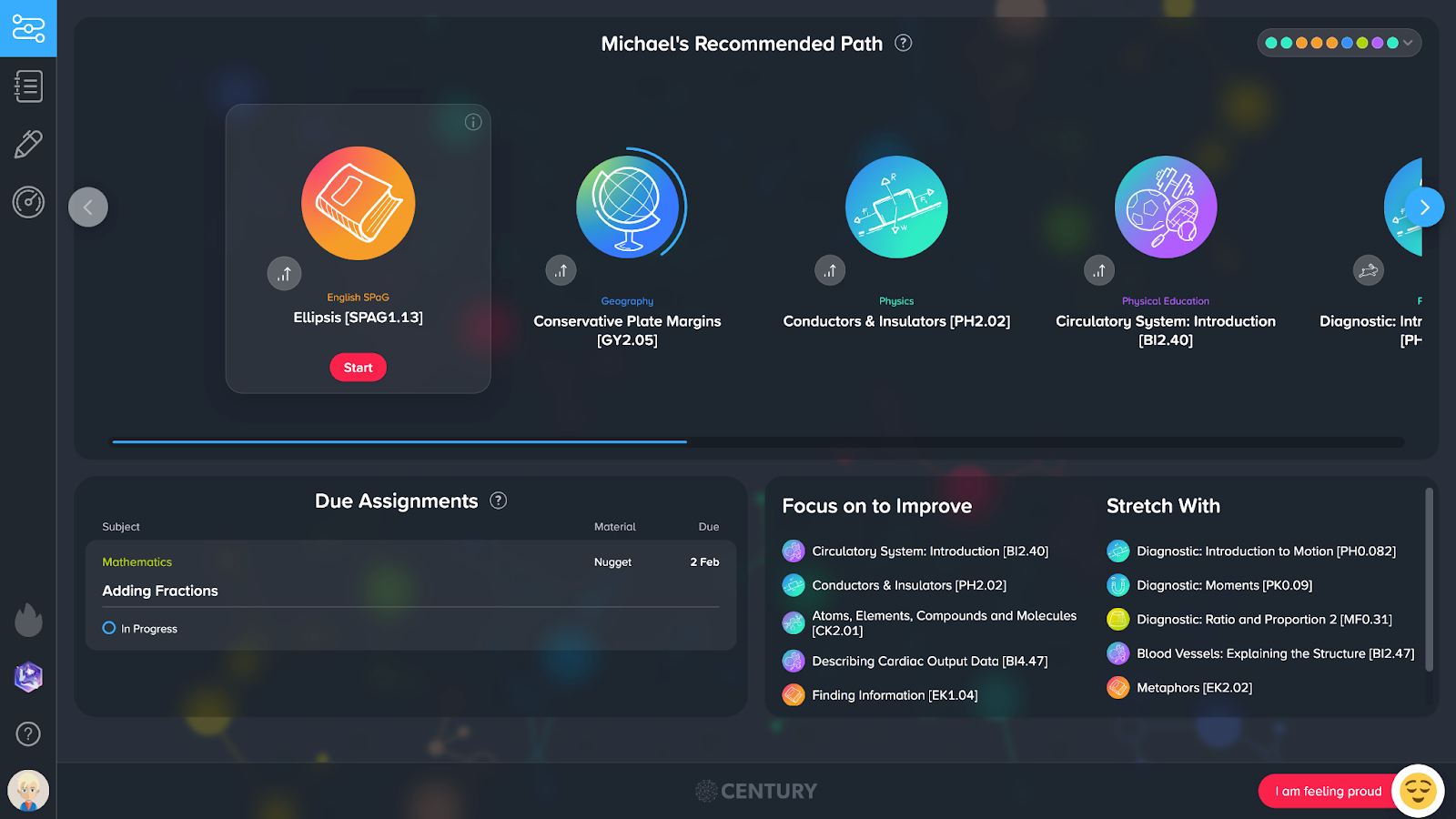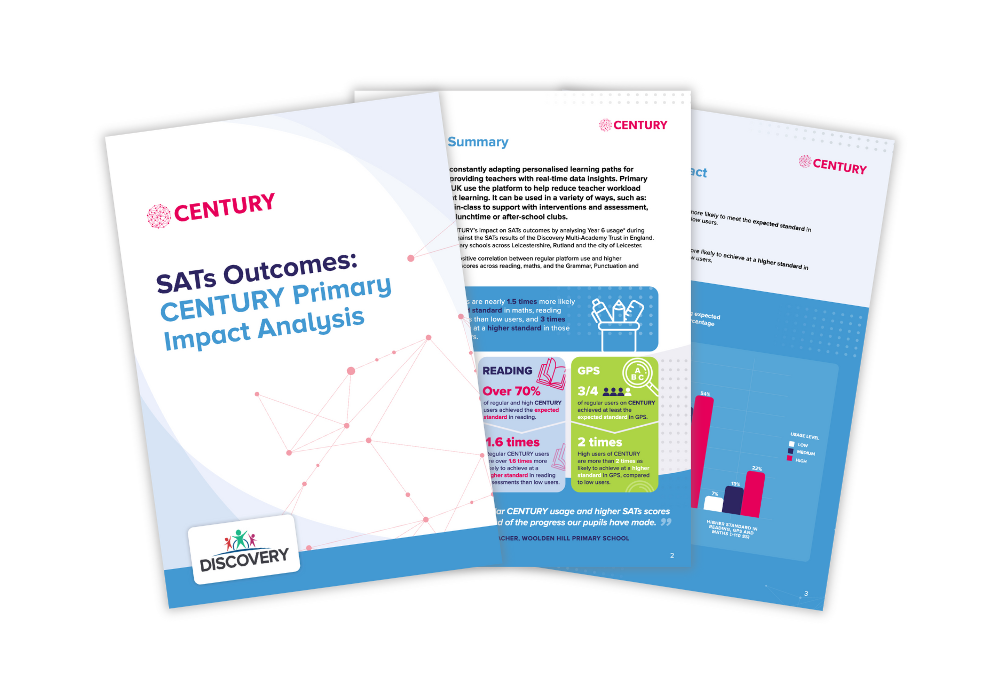Estimated reading time: 12 minutes
Stuart Ayres, Director of R&D and Digital Learning at Westbourne School, led a group discussion on ChatGPT with a number of digital learning experts who have been using CENTURY’s AI at their institutions in recent years. Many of them are already looking at ways they can embed this new, accessible generative AI technology into their practice to support teaching and learning in new, exciting ways.
Many of us will remember exactly where we were the first time we came across ChatGPT, the generative AI system that exploded into our consciousness at the end of last year. I was at a Christmas party. A relative showed me on his phone. “Write a program in Python that draws a Christmas tree using ASCII characters”, I said. It did. “Write me a lesson plan for teaching year 10 about 2-dimensional arrays”, I said. It did. “Write a scheme of work for teaching 10 lessons on object oriented programming”, I said. It did. I was astonished. Where did this come from? A couple of years ago we were chuckling when an AI drew a fuzzy feline face after learning about cats. Now it was planning schemes of work for me and remembering the context of our conversations.
Let’s not be too dramatic. Many of us teachers have been using AI in class for years now. I remembered being similarly awed the first time I saw CENTURY in action at a conference in 2019, delivering rich, detailed performance data for students while providing a whole class with a personalised differentiated schedule of micro-lessons (‘nuggets’). During the Covid-19 lockdowns, we made great use of this here at Westbourne School. It’s still an important staple for our students. It asks and marks questions at a superhuman rate. It extends learning and collects valuable performance data all on its own. Far beyond simply generating grades, you can see exactly how hard a student has tried with a topic. It highlights where some show determination and persevere, or where others may rush answers or even give up. You don’t get that from traditional homework.
As a teacher, you want different frequencies and depths of feedback: short consolidation tasks with instant feedback; lower frequency, more detailed formative feedback for deeper tasks; and longer frequency detailed summative feedback at the end of units. CENTURY ticks the first box, attending to learners’ misconceptions with instant feedback, and the AI choosing the best next nugget to progress a student’s learning through a specific course. Could technology like ChatGPT help with the other two?
ChatGPT is a generative AI. It works by using “a neural network trained on a large dataset of text from the internet to generate a continuation of the input text that is similar in style and content to the text it was trained on”, as it told me itself. Clearly its impressive, though rather spooky, responses represent a huge leap forward in general-purpose AI for the masses.
You will be well aware that the system has caused something of a stir in education circles, for good reason. Try asking it to write a 1,000-word fact-based essay or summary of a complex topic like the end of the Roman Empire. Then ask it to justify its answer or provide extra analysis. It is quite astonishing. So much so that in January, Alleyn’s School in London announced it would be scrapping essay-based homework as a result of the appearance of ChatGPT, and instead rethinking what they are asking students to do at home.
As educationalists we all have this call to make. There is no going back. Generative AI like ChatGPT will have a huge impact on how students, and teachers, work. And this will only continue. Version 4, out later this year, has been trained on a much larger dataset which will make it even more formidable.
Here at Westbourne School we plan to embrace this technology, and we are discussing the academic and administrative potential of this disruptive new upstart. Our teachers are currently exploring its application in each of their subjects and areas of administration, while being mindful of its limitations. We can’t stop students using ChatGPT to help them with their studies, but we can teach them to ask better questions, to target prompts, to refine their inquiries, and to be discerning and critical in their consideration of its responses.
Millie Brisk, Apple Teacher, at Bolton School, Junior Boys division
Bolton School, an Apple Distinguished School, has been using CENTURY since 2019 to stretch and challenge their pupils. As a foundation, the school uses CENTURY to consolidate learning and to continue to support home learning from Key Stage 2 to Sixth Form.
The arrival of an advanced AI to which you can pose big theoretical questions such as ChatGPT presents a host of big questions in itself. The main application for students to begin with will be how you ask these big questions, how you refine your questions to gain worthwhile insights and how you verify authenticity and accuracy of the answers. Josef Minta, our Art Coordinator, has used ChatGPT to generate responses to pupil questions to spark a further discussion around human and AI questioning and reasoning.
Inquiry skills are embedded in the school’s current curriculum but are being developed further, in line with the research project to develop pupils’ skills of becoming inquisitive learners. Millie Brisk said: “Teaching to use AI in a positive, yet safe way is important, and in turn can spark creativity and highlight the importance of asking questions that generate even more curiosity and thought.”
Teresa Menton, Head of Digital Learning at Doha College
Teresa Menton’s team had initially responded to ChatGPT by temporarily blocking it for students while a staff working party evaluated the software and developed teaching strategies with it. Doha College has around 6 years of experience using CENTURY, which is now deeply ingrained in their practice. The speed and depth of analysis it provides has led the school to explore the wider application of AI across the school.
Teresa has had concerns about the new technology, particularly if overreliance on something like ChatGPT will reduce students’ creativity. She is also concerned it could be gamed or tricked into providing false responses and “we already know that it can make mistakes”. (I experienced this myself when it provided me with a snippet of code containing a logic error). The responsibility of teachers is key. “Ultimately generative systems like this are here to stay, and ultimately we, as educators, are going to have to learn to work with them, while maintaining academic rigour and screening for misinformation.”
Victoria Lucas is Head of English and maths at Bishop Burton and Riseholme College
Victoria Lucas has been using CENTURY’s AI-powered platform for almost three years. Victoria made the point that teaching and learning platforms that use AI set themselves apart with the ability of the system to respond to student answers, create an individual pathway and generate feedback automatically. “This is certainly the future and has proved itself as priceless in saving teacher time for the planning of interventions - support, stretch and scaffolding,” she said.
As for ChatGPT, Victoria believes that we need to embed, welcome and integrate new technology and her college is even setting up ways to explore the metaverse in education. She sees ChatGPT as a tool to further develop learner access and content, though as with any independent work at home or unsupervised, there is always a risk of cheating. She adds, “This is where our role as educators I feel comes in. Like with any test of learning, they only cheat themselves if they do not use wholly their own work or go through the process honestly.”
Teachers will be able to catch much of this though. “In English the ‘patchwork quilt’ style of an essay would be a dead giveaway”, believes Victoria. ChatGPT does not lend the depth or cohesive point analysis, nor the level of interpretation needed for A Level essay questions and “could not replace the experience and understanding that comes from the actual stimulus, a novel or poem”. As students will not have access to AI technology in the final unseen exams, and need to build the skills tested in formative and summative assessments, Victoria says that it is their “responsibility” to teach them not to use it “apart from as a research tool in the building up process”.
Ahmed Robleh, Assistant Head (Technology and Innovation) at Caxton College
Ahmed Robleh has been interested in investigating ChatGPT’s use for teaching and learning. Having used CENTURY’s AI for 2 years, the college now has a group of teachers eager to use new AI technologies to help personalisation, to save teacher time and to create resources. They have already created questions for English, with a focus on assessment objectives around reading and responding to the text; schemes of work in Art for 6-week projects; and live answers in a further maths class on Argand diagrams.
Ahmed and his team are also aware of the risks, though, such as its ability to produce essays. He says they must focus on testing things that cannot be manufactured by AI, that rely on creativity and are verifiable through teachers’ knowledge of their students. As AI takes us down a pathway of personalised learning, Ahmed says that “it is incumbent upon us, as teachers, to be asking more personalised questions for coursework and homework, such as how the material they have studied has changed or affected their personal view on the world, or asking a student to teach their approach to solving a problem”.
We have a responsibility to leverage this tool to improve education
As educators we have plenty of work to do in the coming weeks in establishing the true impact and potential of the new software, but one thing seems certain: AI changes everything. For many in education, the AI revolution already started years ago, giving us powerful new tools to help us better support our students. I suspect that soon we will all find ourselves very accustomed to having our versatile, ever-patient helpers by our sides. It seems that Matthew Ebel was right, everybody does need a robot.
ChatGPT is a generative language model, a very different kind of AI to CENTURY, which is a custom recommender system. Learn more about how an AI like CENTURY can support teaching and learning here.
